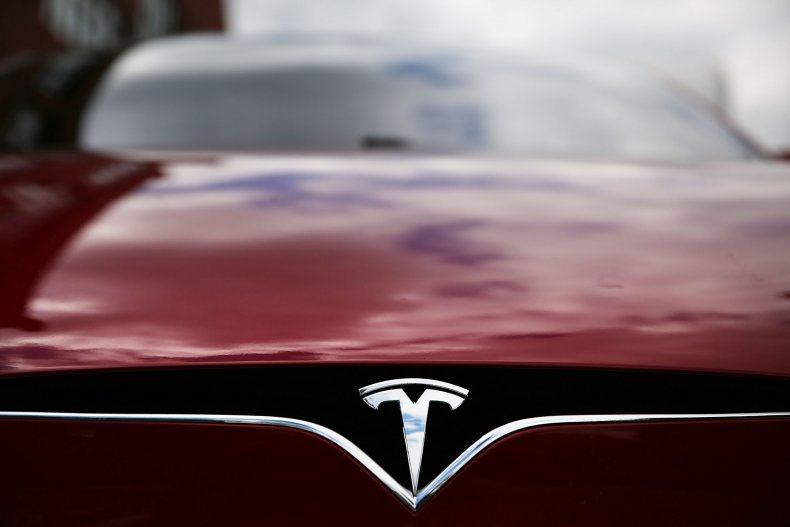Tesla is being sued by the surviving family members of a 44-year-old Japanese man who was struck and killed by one of its electric cars in April 2018.
Documents filed in a San Jose federal court on Tuesday described the case of Yoshihiro Umeda, 44, as being the first "Tesla Autopilot-related death involving a pedestrian" and alleged the incident had shown a "patent defect" of Tesla's technology.
Tesla, led by Elon Musk, is based in Palo Alto, California, and sells cars with automated driver assistance systems. The court motion, submitted by the victim's spouse Tomomi Umeda and daughter Miyu Umeda, was first reported by Bloomberg.
Yoshihiro Umeda was killed on April 29, 2018, after being hit by a Tesla Model X that "suddenly accelerated" when a car in front of it switched lanes, the filing says.
It adds that the Tesla vehicle crashed into a van, motorcycles and pedestrians that had stopped at the side of an expressway near Tokyo following an accident.
The documents allege the Tesla car, which had its Traffic Aware Cruise Control (TACC) feature engaged, sped up after the car in front moved, "rapidly accelerating from about 15 km/h to approximately 38 km/h" before striking the motorcycles and Umeda.
The driver was "found to have been dozing shortly before the crash," the filings note, adding plaintiffs expect the firm to "lay all of the blame" on that person.
"If Tesla's past behavior of blaming its vehicles' drivers is any example, Tesla likely will portray this accident as the sole result of a drowsy, inattentive driver in order to distract from the obvious shortcomings of its automated... technology," it states.
"Any such effort would be baseless. Mr. Umeda's tragic death would have been avoided but for the substantial defects in Tesla's Autopilot system and suite of technologies."
According to the documents, the incident showed a "patent defect" as the car did not issue alerts to the drowsy driver because his hands were on the wheel. They alleged the system failed to recognize pedestrians and engage a braking system.
"Tesla failed to develop reasonable measures and safeguards against the dangers that these types of scenarios present to drivers," the motion claims. It goes on to describe the Tesla system as "fatally flawed," "half-baked," and "non-market-ready."
"Tesla should be held culpable for its conduct and acts committed in marketing its vehicles with reckless disregard for motorists and the general public," it states.
Multiple crashes involving Tesla electric cars, some fatal, have been investigated by U.S. authorities in recent years, and footage has continued to surface of drivers sleeping inside the semi-autonomous cars while speeding down busy roads in the U.S.
In February, the National Transportation Safety Board (NTSB) ruled limitations of the Tesla "autopilot" system, mixed with driver distraction, contributed to a fatal crash of a Tesla Model X that occurred on March 23, 2018, in Mountain View, California.
Tesla says its vehicles are engineered to be the "safest cars in the world" and stresses online that, despite often being named Autopilot, it is not a self-driving system.
The features are designed to be improved and updated over time.
"Autopilot is intended for use only with a fully attentive driver who has their hands on the wheel and is prepared to take over," the firm explains. "It does not turn a Tesla into an autonomous vehicle, and it does not allow the driver to abdicate responsibility."
In the Umeda filing, Tesla is sued for defective design, failing to warn, negligence and wrongful death. The company has been contacted for comment about the case.
In 2018, an Uber that was in self-driving mode was reported to have killed a woman in Arizona. It marked the first known fatal crash involving an autonomous vehicle and a pedestrian in the U.S. despite a human being behind the wheel, ABC15 reported.

Bagikan Berita Ini















0 Response to "Tesla Faces Lawsuit after Model X on Autopilot with 'Dozing Driver' Blamed for Fatal Crash - Newsweek"
Post a Comment